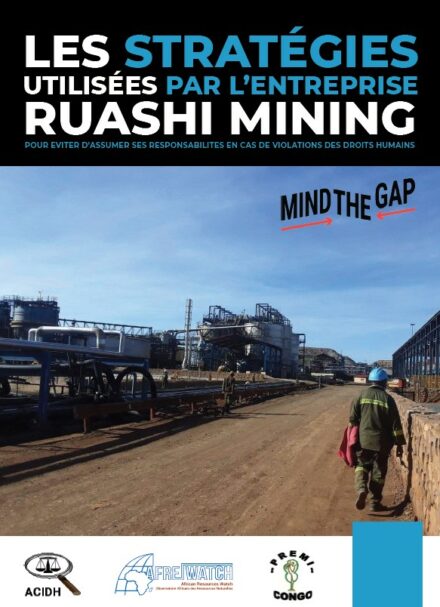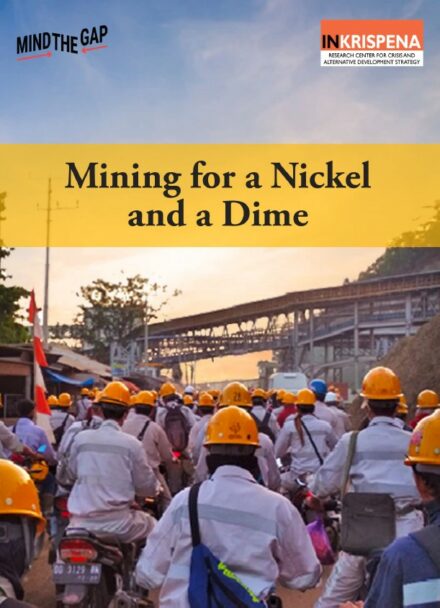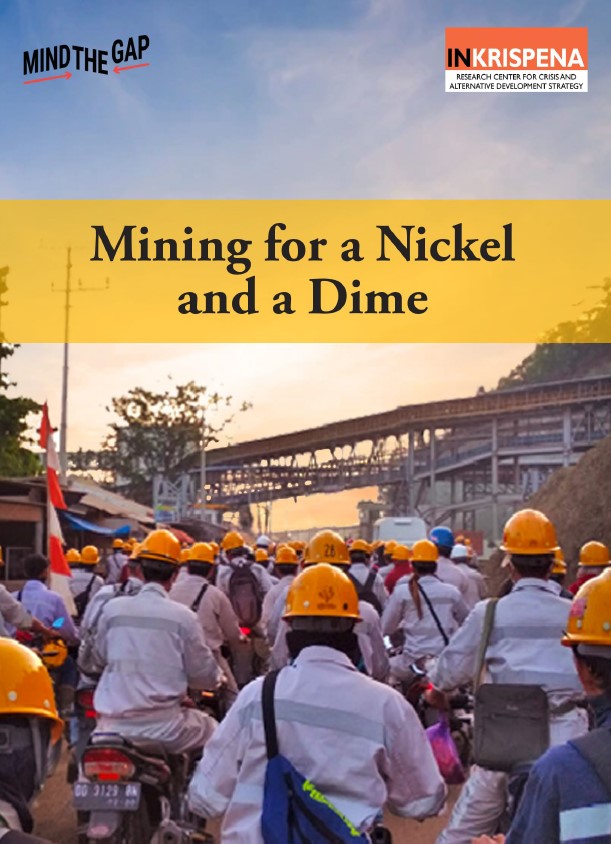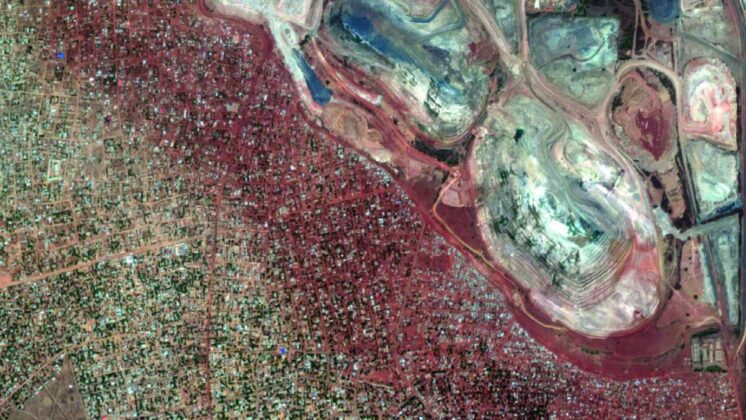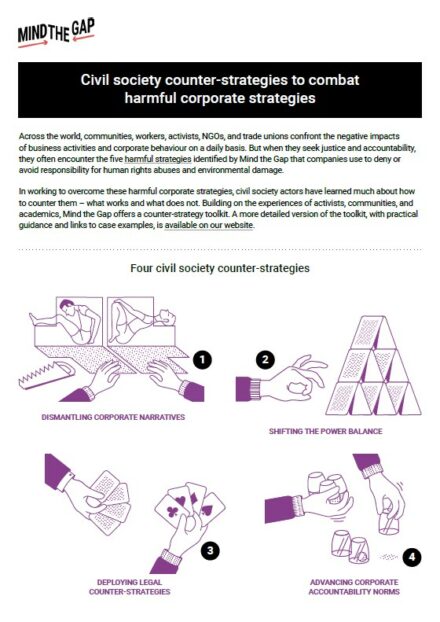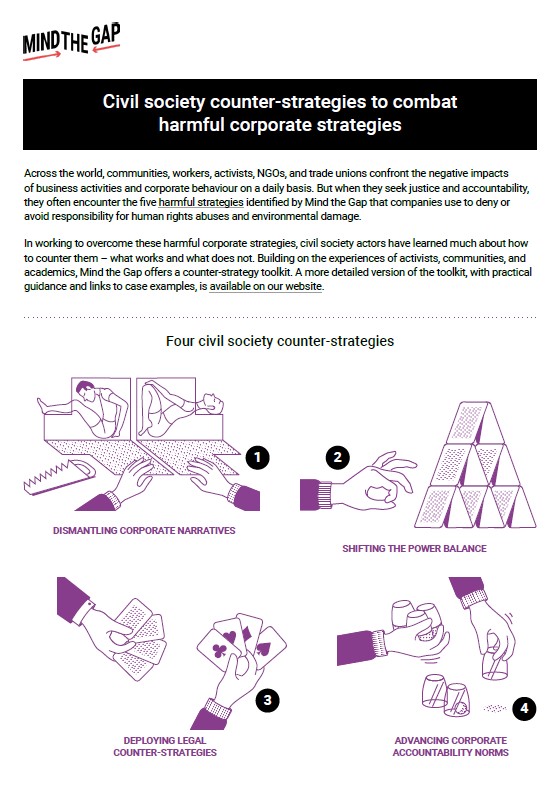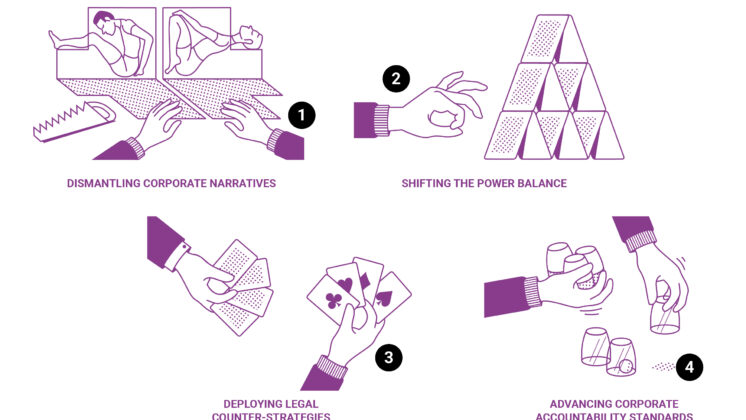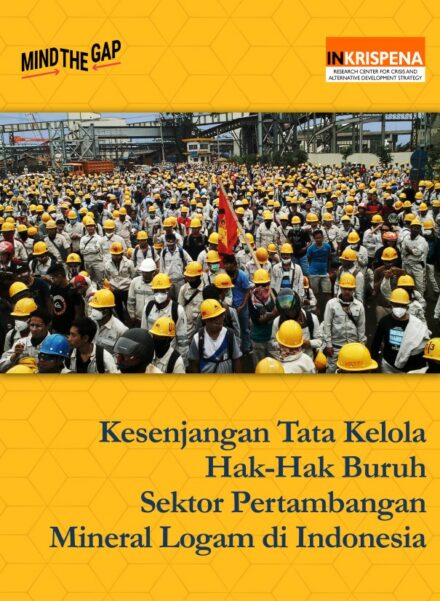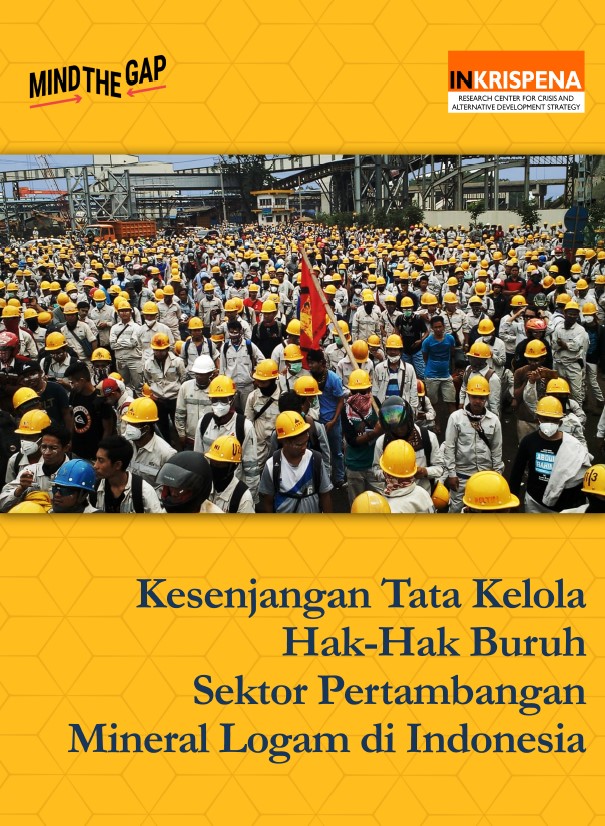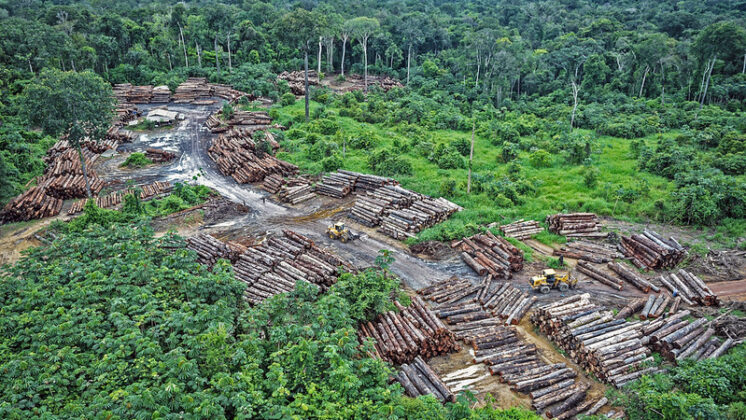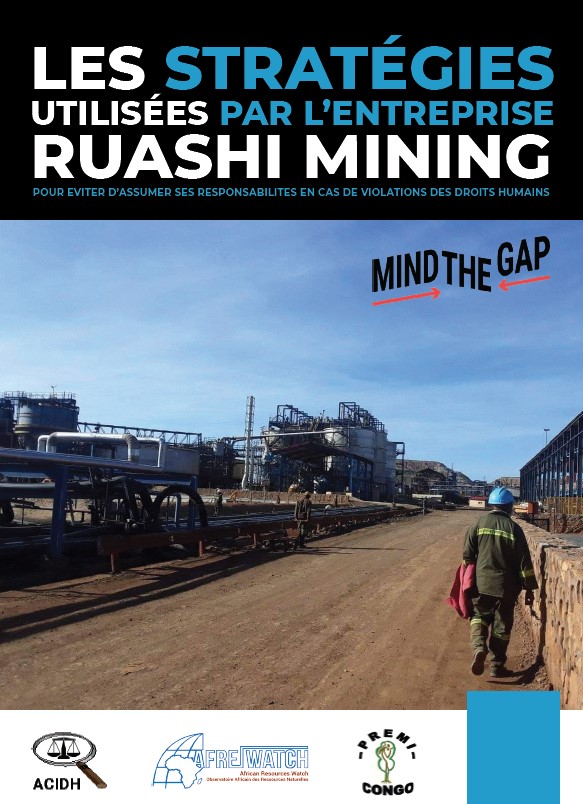For over 15 years, a Chinese-owned mining company has been subjecting Congolese communities to serious human rights abuses and environmental destruction. A new report by PremiCongo, Afrewatch and ACIDH sheds light on how Ruashi Mining has thus far been able to avoid responsibility by using a range of harmful corporate strategies.
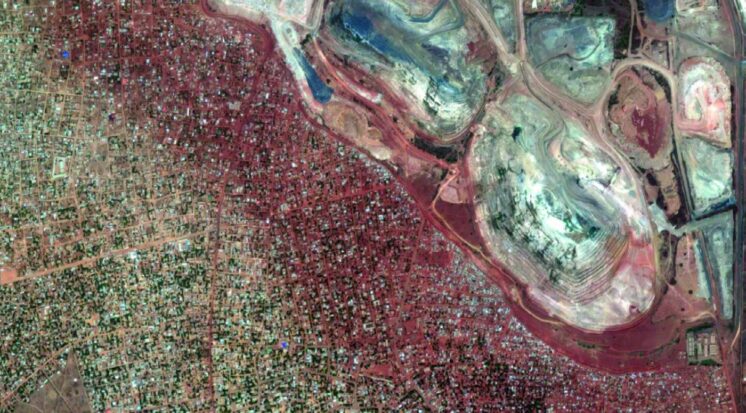 Photo: Fleur Scheele / SOMO
Photo: Fleur Scheele / SOMOStrategies used by Ruashi Mining to avoid responsibility for human rights violations
Ruashi Mining, a subsidiary of the Chinese multinational Jinchuan Group, started operating in the Democratic Republic of the Congo in 2004, when the country opened its mining sector to private investors. The company took over a former mining site of the state-owned Gécamines, located in Ruashi, a commune in the city of Lubumbashi. The inhabitants of Ruashi initially hoped that the Ruashi Mining’s arrival would lead to improved living conditions, employment opportunities, social projects and better infrastructure. None of these expectations were met.
Instead, as the report describes, the people living near the mine suffered forced evictions and dispossession of their houses and plots of land, without receiving proper compensation, if any at all. Regular spills of wastewater pollute their soils and water sources, damaging crops. Explosions in the open pit mine cause dangerous situations with rock fragments falling across the area. The blasts have damaged homes and properties, while a fourteen-year-old girl was killed after being hit by a rock from the mining site on her way back from school. Despite community protests and actions, the company has not provided remedy for harms suffered.
Harmful corporate strategies used by Ruashi Mining
The research on Ruashi Mining adds to a body of cases documented in international research carried out within the Mind the Gap project. It shows that corporations worldwide use strategies to avoid responsibility for human rights abuses and environmental damage, allowing them to continue to operate with impunity. The wide prevalence and acceptance of these strategies underlines the urgent need for a thorough revision of our global trade and production systems.
The report reveals that Ruashi Mining has been using the following harmful strategies to avoid responsibility for impacts suffered by the community:
- Utilising State power: the company has actively used the DRC mining code to its advantage. In line with this law, the company deals primarily with provincial and national authorities, bypassing the lower level authorities that are likely to be more critical towards the company. Communities further allege the company is paying state officials to carry out the required controls of their operations, thus undermining their independence. Additionally, Ruashi Mining has reportedly been supported by the national police force to crush down community protests against the company.
- Distracting and obfuscating stakeholders: Ruashi Mining’s engagement with the affected community and victims is felt to be been mostly symbolic. Victims report that the company raised false expectations about compensation for their grievances caused by Ruashi Mining’s operations. Most of the victims are still awaiting compensation for expropriation of their lands and forced evictions and in the process the company has effectively discouraged the community to stand up for their rights. Although the company has implemented several social projects such as renovation of schools and markets, it did not meaningfully consult with or involve the affected community in the process. In several cases, the projects were located far from the homes of the directly affected people and were of little relevance to them.
- Undermining defenders and communities: Community leaders involved in protests against Ruashi Mining have suffered from intimidation and harassment by private and state security services. The company has also effectively contributed to dividing the community by engaging and paying people to participate in company arranged meetings.
- Constructing deniability: Ruashi Mining has refused to disclose information, such as their Environmental Impact Assessment and Mining Project Environmental Management Plan, that could tie them to human rights and environmental risks and impacts. Contrary to requirements under Congolese law, Ruashi Mining’s Environmental Impact Assessments have not been developed with the meaningful participation of affected stakeholders.

